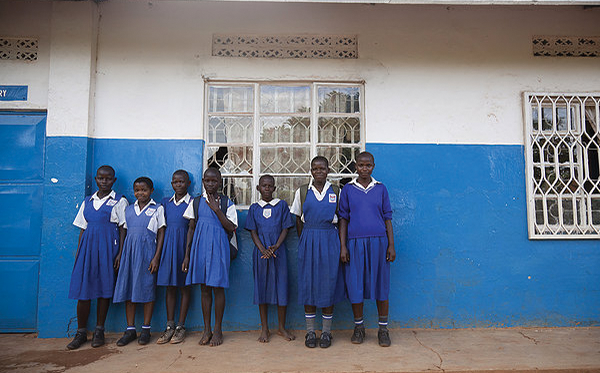
GIRL GROUNDED Many girls in developing countries don’t get the opportunity to go to school.
After watching a 30-minute preview of the documentary Girl Rising, I was more moved than I had been by every movie that I had seen in 2012 combined. Directed by Richard Robbins, the film traces the lives of nine girls from underprivileged backgrounds and from a variety of countries, including Peru, Ethiopia, India, Egypt, Sierra Leone and Afghanistan.
The film opens with Sokha, a young girl from Cambodia who, despite being orphaned and homeless, became an accomplished student in a society that frequently denies women the opportunity to receive an education. We next meet Wadley, a wonderfully determined seven-year-old girl from Port-au-Prince, Haiti, where the right to be educated is often determined by a family’s income and socioeconomic class. The final story that is presented in the preview to the full film is that of Suma, aNepali girl who stresses that in her country, the decision of parents to bond their daughter to a master is often the best option for guaranteeing food and shelter. She was bonded to her first master at the age of six years old, and, while her brother was able to attend school, Suma was mistreated by her master’s family and forced to work from four in the morning to late at night. The most chilling part of her experience is conveyed in a song that she wrote while working as a domestic servant: “Thoughtless were my mother and father/ They gave birth to a daughter.” After receiving help from a woman who insisted that Suma be liberated from her master, she was finally able to go to school at age 13.
Though the tales of these three girls end happily, the same cannot be said for all of the women in their nations. A series of panelists after the preview of the documentary provided more insight on the issue at hand and reiterated the heartbreaking truth that it is more dangerous for girls living in many of the aforementioned countries to fetch water from a local river than it is to fight on front lines in contact due to the hazard of contact with acid. Such a brutal reality could be altered if these girls were given the right to an education rather than being required to perform arduous domestic duties.
All of the panelists at the event, which took place at the Woodrow Wilson Center, are advocates for the Women in Public Service Project, a program sponsored by the Global Women’s Leadership Initiative and founded by former U.S. Secretary of State Hillary Clinton in 2011. Dr. Rangita de Silva de Alwis, the director of the initiative and senior advisor to the United Nations, brought to attention the notion of “intellectual violence” toward women, which refers to the exclusion of girls from education.
In response to a question from an audience member about how she could facilitate the objective of the film, Holly Gordon, executive producer of the film, emphasized that it is essential to “start a conversation with people who have power and resources.”
The Honorable Tara Sonenshine, the undersecretary of state for public diplomacy and public affairs, made a poignant point at the screening. “Nothing is more powerful than women serving in public positions,” she said. Girl Rising and Robbins’ creation of the 10×10 Campaign, a foundation dedicated to providing services to improve the lives of girls internationally, encourages people to become involved in these life-changing efforts. A percentage of ticket sales will contribute to the project so that more girls can wind up like Sokha — who is now set to attend college.
A screening will be held in the Georgetown Theater on April 17. Tickets are available online.








